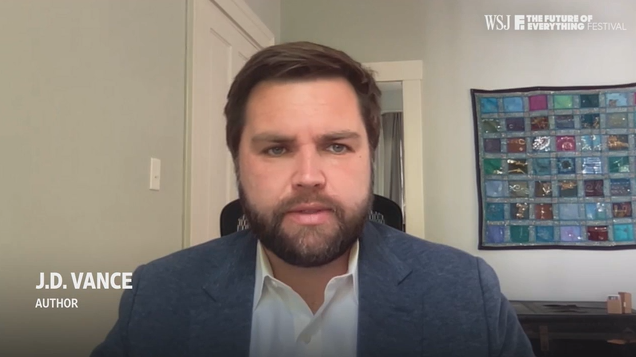
RECOMMENDED READING
“We are a working-class party now,” Missouri Republican Senator Josh Hawley tweeted at 10:53 p.m. Eastern time on election night in November. “That’s the future.” A few minutes later, Fox called Arizona for Joe Biden, beginning a string of reversals for Donald Trump and pointing toward a future quite different than the one Hawley had probably imagined when he posted.
…
The most closely attended-to conservative voice on this issue is Oren Cass, a former Mitt Romney adviser who heads American Compass, a conservative think tank that calls for “widely shared economic development.” Nearly all the Republicans loosely aligning themselves with working-class interests listen to Cass, and it’s partly because he has a theory about the economic history of this century and how it led to our present predicament.
“It would be a mistake to look at Trump as the future of conservatism,” Cass said in December. “Trump is obviously not conservative under any definition of the term. He’s essentially an earthquake…. On the one hand, that’s costly and dangerous. On the other hand, it has the benefit of showing what the weak structures were, and where the foundations had eroded.”
As Cass sees it, the weakness of structures has been explained by the work of M.I.T. economist David Autor, who has given us a new understanding of how labor markets work under globalization. A “China shock” wiped out a good deal of manufacturing employment after China’s accession to the World Trade Organization in 2001, Autor has shown. “Skill-biased technical change” drove college-educated workers’ compensation up and that of the noncollege-educated down. The economists Anne Case and Angus Deaton gathered similar evidence of the collapse of labor markets and the rise of regional inequality in their 2020 book on opioids, suicide, and life expectancy, Deaths of Despair and the Future of Capitalism.
Such processes take time to figure out. Cass believes that we can now see these misfortunes as the chickens of the late twentieth century coming home to roost. Cass is a friend of the memoirist J.D. Vance, author of Hillbilly Elegy, a book that is often read as an X-ray of how eastern Ohio and other parts of Appalachia were struggling as Hillary Clinton and Donald Trump were vying for the presidency in 2016. But Cass reminds us that the embrace of this coming-of-age saga as an all-purpose explanation of Trump’s new pitch to the working class was misguided, for Vance was already in his thirties when it was published. “The story that he is telling,” Cass insisted, “is of what was going on in the late ’90s, during what we think of as the go-go years, the boom years, the very best years.”
Recommended Reading
Oren Cass and J.D. Vance on the Future of the Republican Party
Oren Cass joins J.D. Vance and Gerald F. Seib for a conversation about the future of conservatism and the GOP at the WSJ Future of Everything conference.
Pro-Union Conservatives Are Trying To Take Over the Republican Party. Oren Cass Is Leading the Way.
American Compass’s Oren Cass discusses his vision for a worker-centric conservatism, including a focus on unions and non-college pathways, in an interview with Batya Ungar-Sargon.
Oren Cass Urges Conservatives to Shed Free-Market ‘Orthodoxy’
Peter Coy highlights American Compass executive director Oren Cass’s piece in Foreign Affairs on the path forward for post-Trump conservatism.











